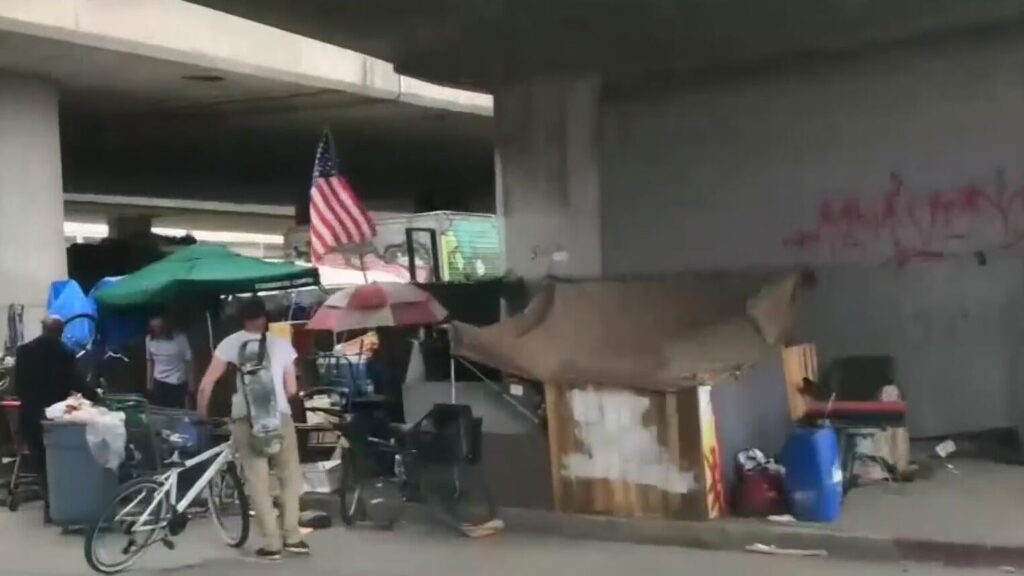Bay Area Mental Health Advocates Criticize Trump’s Executive Order on Homelessness
In a recent executive order, President Trump has pinpointed mental illness as a significant factor contributing to homelessness, advocating for the forced commitment of individuals as a potential solution. This directive has sparked considerable concern among mental health advocacy groups, especially Families Advocating for the Seriously Mentally Ill (FASMI), a notable organization in the East Bay.
For years, FASMI has campaigned for better mental health services and treatment options, particularly in Alameda County, where many individuals suffering from severe mental health issues find their way to Santa Rita Jail instead of receiving proper care. Margot Dashiell, a member of FASMI, highlighted the complex reality of severe mental illness, drawing on her personal experience with a sister who lives on the streets. Despite the order’s apparent goal of humane treatment, Dashiell argues it fosters an approach that is more punitive than supportive.
Concerns Over Treatment and Civil Commitment
The advocacy group’s founders share a common bond: they all have loved ones battling serious mental illnesses. They convened recently in a Berkeley home to voice their apprehensions regarding the president’s recent actions. They argue that local governments have been passive in addressing mental health treatment and express that there may be situations where mandatory treatment is warranted. Yet, the language found in Trump’s executive order raises red flags for these advocates.
Without the establishment of new mental health facilities, there is significant worry that the mentally ill will be dispossessed of proper treatment, reminiscent of how undocumented immigrants are sometimes handled—sent to makeshift camps that lack adequate care.
Katie Polony, another FASMI member, expressed her fears: “That is the fear, that they’ll criminalize an illness. We don’t want an administration that has displayed a callous disregard for vulnerable populations to impose a system that lacks proper treatment for our children.”
The Order’s Focus on Law Enforcement
The executive order frames homelessness and mental illness primarily as concerns of crime and public safety, directing the attorney general to explore policies that encourage the civil commitment of individuals deemed dangerous. This is particularly troubling for families like that of Alison Monroe, whose adopted daughter died from a fentanyl overdose while living on the streets. Monroe emphasized the dangers of categorizing vulnerable individuals as offenders, stating, “If they defined her as an offender, they might have put her in jail forever. I wouldn’t have any say over her situation.”
A Troubling History
The United States has a complicated history with mental health care. Throughout much of the early 20th century, individuals with mental illnesses were often confined in asylums that were notorious for their inhumane conditions. The major reforms of the 1960s were intended to provide community-based treatment; however, many individuals ended up homeless due to failures in the system. Patricia Fontana, another advocate, voiced her concerns about this swing back towards neglect. “Instead of identifying targeted methods to enhance the existing system, it feels as if we are regressing to a more punitive approach.”
Uncertain Future
The ramifications of Trump’s executive order on homelessness and mental health continue to stir unease among advocates. As the discourse moves forward, there is a shared sentiment that simplistic solutions to the deeply entrenched problems of homelessness and mental illness may not just fall short—they could exacerbate the crisis.
| Advocate | Concerns |
|---|---|
| Margot Dashiell | Suggests forced commitment lacks true humane treatment. |
| Katie Polony | Fears criminalization of mental illness. |
| Alison Monroe | Worried about labeling mentally ill individuals as offenders. |
| Patricia Fontana | Concerned about returning to a neglectful system. |
As discussions proceed, those connected to mental health issues are left grappling for hope amid an uncertain landscape.

